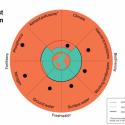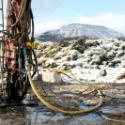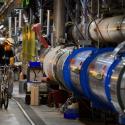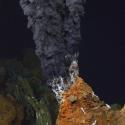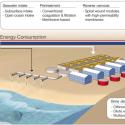Science Is Essential
Science touches so many aspects of modern life that it's hard to keep up. Through our programs and this website, Science for the Public provides up-to-date information about scientific innovations, discoveries, and issues that are shaping modern knowledge.
Coming Events
No events are scheduled for June or July
Recent Events
Space Debris Alert!: The Potential Impact on the Ozone Layer and Earth’s Climate
05/27/25 (rescheduled from April) Thousands of satellites orbit Earth. At the end of their missions, they drop into and burn up in the stratosphere, depositing ash that contains oxides and pollutants that are affecting both the ozone layer and the planet's climate. Atmospheric scientists are working to analyze the aerosols and their worrisome impact. Daniel Cziczo
The Brain-Computer-Interface Paradox
05-20-25 For individuals paralyzed by injury, stroke or ALS, brain-computer-interface (BCI) devices can enable movement and even speech. However, there are concerns: specifically, that such technology could be developed for mind control. Lukas Meier
Cancer Research: How It Works and Why It's Crucial Today
04/08/25 Numerous types of cancer are increasing today and scientists are trying to identify the causes. That's why cancer research is one of the most important concerns of modern science. We learn how the research is done and also why federal funding for this work is essential. Gerald Denis
Big Bang
A theory we acept today was originally rejected by most physicists
Resistance to New Ideas
Many of the most important advances in scientific understanding were initially rejected or ignored.
Life: Synthetic Life
Partly in order to understand its amazing complexity, and partly in order to advance medical therapies. So, how do you create a viable cell?
Featured Items
Addressing the Threat to Earth System Boundaries
09/12/23 The breaching of most of the Earth system boundaries (ESBs) is destroying the planet and the crisis must be addressed immediately. Solutions must include justice for those who suffer displacement, health and economic impacts of the crisis. Diana Liverman
Analyzing Clouds and Climate Change
09/26/23 Clouds protect the planet and play an essential role in climate dynamics. How will the rapidly heating planet affect that relationship? Daniel Cziczo
Carbon Capture and Storage Will Not Reduce Global Warming
02/09/24 GBH Forum Network webinar (noon ET) The extreme level of atmospheric CO2 is well beyond a “capture and storage/sequestration” solution, yet the hype persists that some clever extraction innovation will resolve the problem. Charles Harvey
Heads Up! Surprising Stats
Science for the Public is committed to improving public knowledge of science and public appreciation for the contributions of science to social progress.

The Dark Age of the Universe
05/12/15 What scientists are learning about the "dark ages" of the early universe -before light emerged.
Lincoln Greenhill
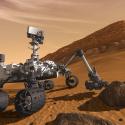
Searching for Bio-Molecules
04/29/15 At the Summons Lab at MIT, scientists probe soil and rock samples from both ancient Earth and --using remote instruments-- Mars for bio-molecules. Roger Summons
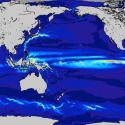
2000 Years of Oceans and Climate
11-14-23 The warming oceans will seriously affect global climate. Developing accurate models of how and when those impacts will occur requires analysis of both contemporary and historical data. Hali Kilbourne

Creating and Testing Vaccines
02/15/21 The amazing mechanisms by which viruses infect cells and the challenge of developing effective vaccines. Forian Douam

Carbon Capture and Conversion
07/19/21 A carbon capture innovation that can produce useful, products, including non-polluting transportation fuels. Sami Khan
Today's Featured Contributors
Featured Guest

Neva Goodwin, Ph.D.
An economist with a unique focus on economic systems and ecological restoration.
As a world society, it seems clear that we have arrived at a point in our history when there must be a major increase in the capability of ordinary people to cope with the scientific and technological culture that is shaping their lives and the lives of their children.
—Leon Lederman, Nobel Laureate in physics







